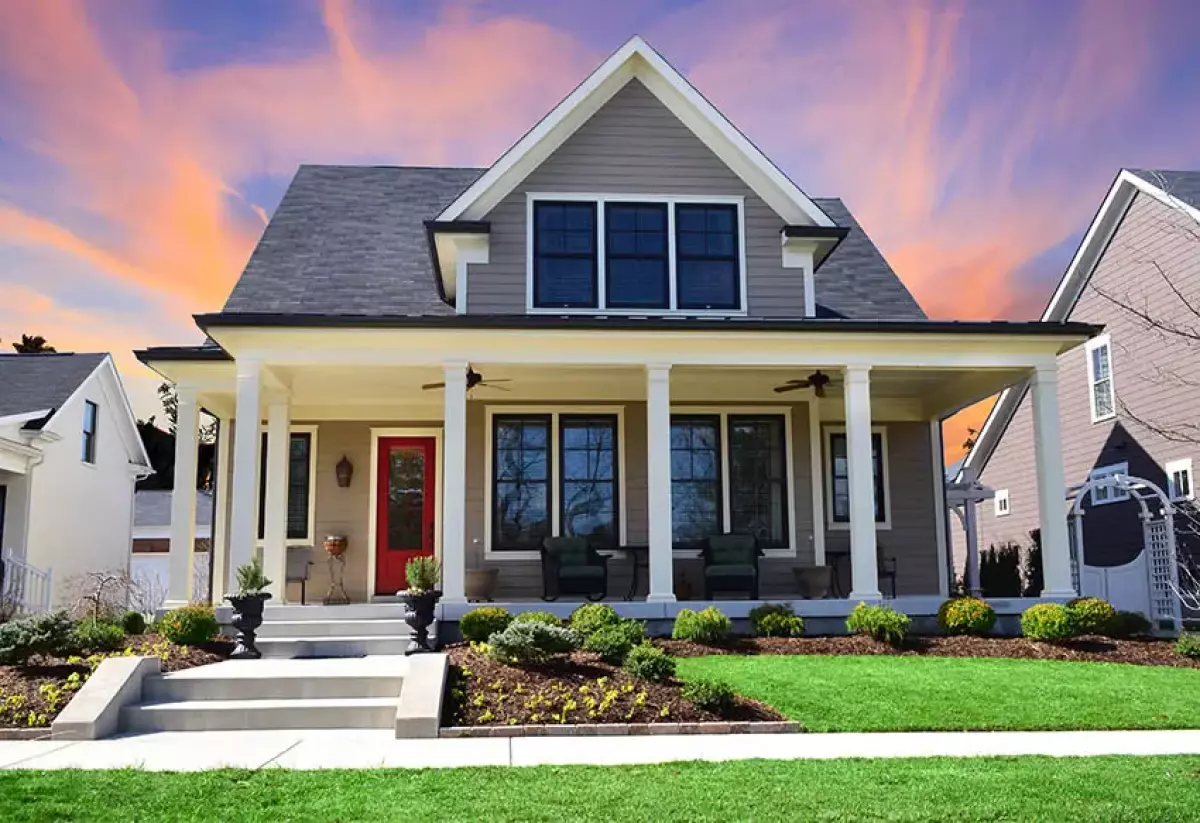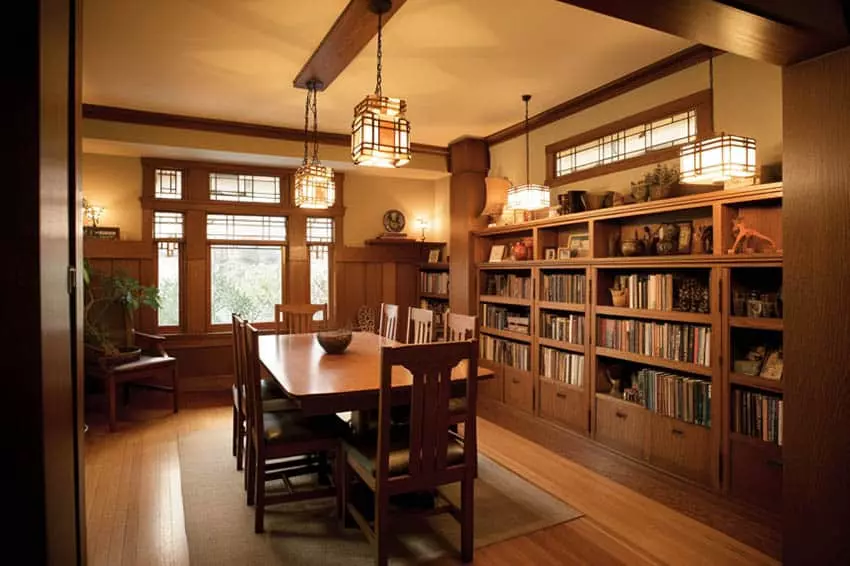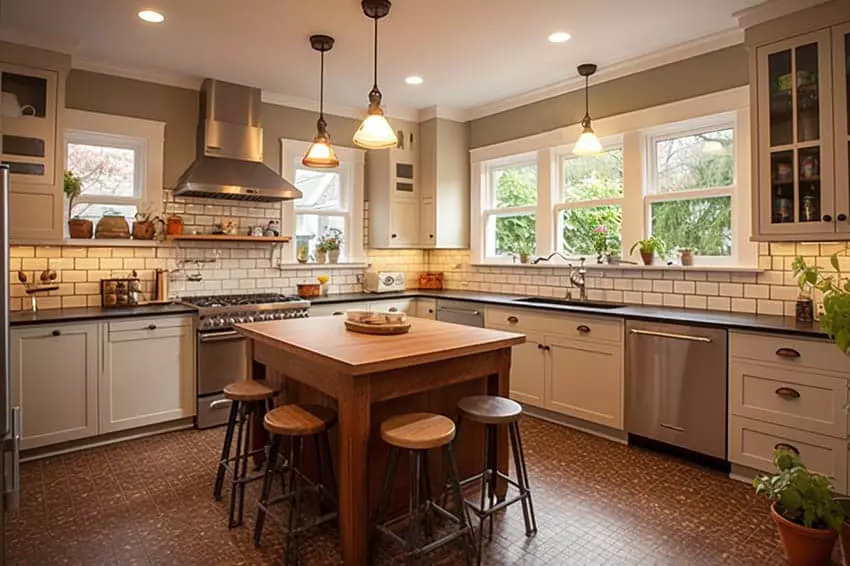 Image: Bungalow house design with front porch
Image: Bungalow house design with front porch
Gaining momentum in the United States during the 1900s, Bungalow Houses emerged as a symbol of simplicity and practicality in design. With their compact and candid approach, these homes quickly captured the attention of homeowners across the country. Inspired by the famous Craftsman Houses, Bungalow Houses have their own distinctive charm that continues to inspire generations of homeowners and builders.
Characteristics That Set Bungalow Houses Apart
Bungalow Exteriors
- Low Pitched Gabled Roofs
- One or one-and-a-half-story designs
- Large front Porches with wide overhanging eaves
- Exposed Beams
- Rustic touch with natural materials like wood and stone
Bungalow Interiors
- Built-in Storage, Seats, and Cabinets
- Stained or Leaded Glass Windows
- Decorative Wooden Trim and Moldings
- Handicrafts and Fine Craftsmanship
- Soaring Ceiling Heights
 Image: Custom wood bookshelving in a dining area
Image: Custom wood bookshelving in a dining area
Bungalow houses boast a cozy and functional design that transforms every corner into a comfortable space. From the dining room with its original built-in shelving room divider to the cozy kitchen with a wood island, every room exudes warmth and character.
 Image: Subway rectangular tile with grey grout and gold hardware in the kitchen
Image: Subway rectangular tile with grey grout and gold hardware in the kitchen
Renovated bungalow kitchens feature clean white cabinetry with gold hardware, white subway tile backsplash, and wood open shelving - a perfect blend of modern and traditional elements.
Understanding the Distinctions: Bungalow vs. Craftsman Style House
 Image: Craftsman bungalow style house
Image: Craftsman bungalow style house
While the names "Bungalow" and "Craftsman" are sometimes used interchangeably, there are fundamental differences between these two prominent styles. Bungalow houses emerged as a response to the lavish Victorian homes, offering a simpler and more affordable alternative. In contrast, Craftsman houses aimed for an ornamented and intricately decorated aura.
Exploring the Unique Appeal: Bungalow vs. Cottage Style House
The North-Eastern charm of Cottage-style houses originated in England, emphasizing simplicity and natural materials. These smaller homes often feature stone or brick facades and beautifully landscaped gardens. Bungalow houses, on the other hand, showcase spacious front lawns and character-filled porches. The two styles also differ in size and proportions, with Cottage-style houses typically being two-story structures.
The Wonderful World of Bungalow Homes
Different Types of Bungalow Homes
While strolling down the streets, you can easily spot Bungalow homes with their distinct low profiles. Let's take a closer look at some of the notable Bungalow styles:
1. California Bungalow Striking and similar to Craftsman houses, these homes showcase stucco, wood, shingles, and horizontal sidings. You can spot them from miles away!
2. Craftsman Bungalow Inspired by natural and rustic materials, Craftsman Bungalows often feature stained brown or dark green color schemes. They have wide overhanging eaves and street-facing gables that make them easily identifiable.
3. Tudor Revival Emulating English style, Tudor Revival houses boast steep roofs, magnificent chimneys, and tall, narrow windows. Decorative exposed woodwork adds to the charm of these homes.
4. Modern Bungalow Inspired by the modernist movement, Modern Bungalows showcase clean lines and the use of concrete, glass, and metal. With spacious, light, and airy interiors, these homes exude a sleek and contemporary appeal.
5. Prairie Style Prairie Style Bungalows stand out with their decorative and contrasting wall materials. Developed by the Prairie School members, these homes often feature massive piers, flat chimneys, and casement windows.
As you become familiar with the diverse range of Bungalow styles, it's clear that these homes have left an indelible mark on the architectural landscape. Share your thoughts on these charming houses in the comments below!
For more inspiration, check out our Cape Cod style house article.









